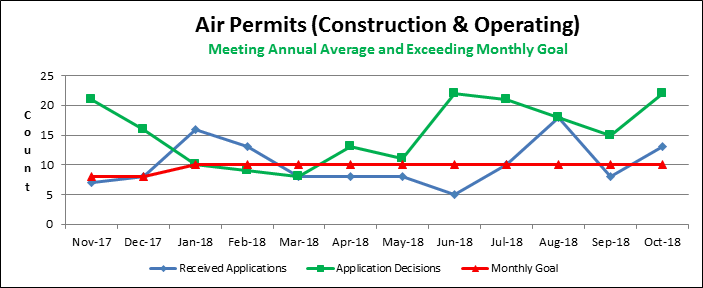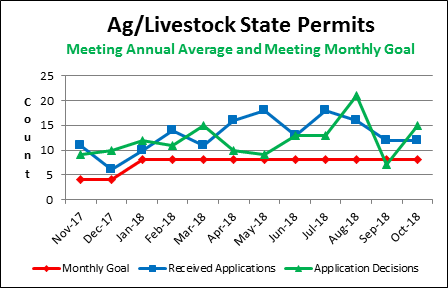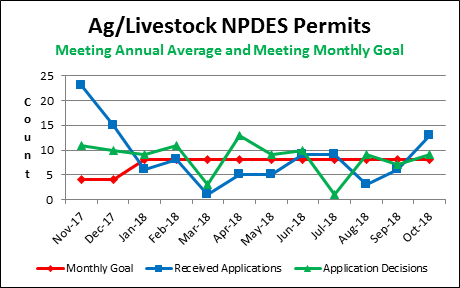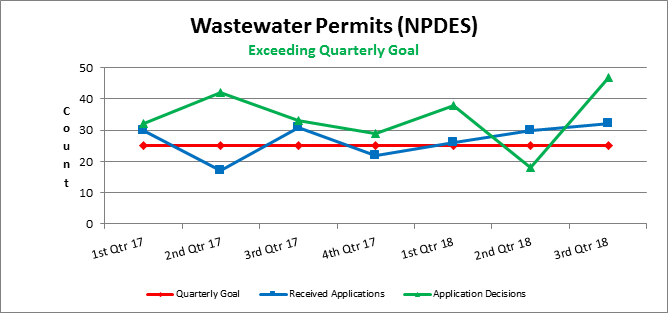October 2018 Metrics Report





Emerging Risks / Issues:
- NDEQ staff completed seasonal weekly bacteria and Harmful Algal Bloom (HAB) sampling at 54 beaches across the state. Over 2,000 samples were collected and analyzed with results posted weekly on NDEQ’s website and also delivered to the associated listserve. Seven beaches were closed due to HABs this year.
Accomplishments:
- In 2004 Lincoln’s Antelope Creek was listed as impaired due to high levels of E. coli, that were over 25 times the water quality standard. Over the next 20 years a combination of the City of Lincoln, Lower Platte South NRD, UNL and others developed plans and implemented best management practices to reduce levels of E. coli pollution. Today E. coli levels are below the standard and the creek is safe for recreation. EPA approved NDEQ’s determination to remove Antelope Creek from the nation’s impaired waters list in 2018, one of the few urban creeks to be delisted for E.coli.
Misc. Items of Note:
- On October 30th the NPPD/NDEQ Environmental Partnership conducted the annual “Power Summit”, which brings together those involved in generating electricity from coal. Topics ranged from OPPD’s alternate energy plans to the future of electrification and related impacts. A federal perspective was presented by Ken Wagner, Sr. Advisor to the Administrator for Regional and State Affairs.
- NDEQ and DHHS staff attended a meeting of fire chiefs in Belden to discuss regulations – burning permits and debris disposal (NDEQ) and asbestos removal (DHHS) from buildings associated with fire training exercises. Fire training exercises are essential to VFDs, but there have been many instances of trainings occurring in violation of associated regulations. This session provided an opportunity to ensure VFD officials are aware of related requirements. The efforts of state staff were appreciated.